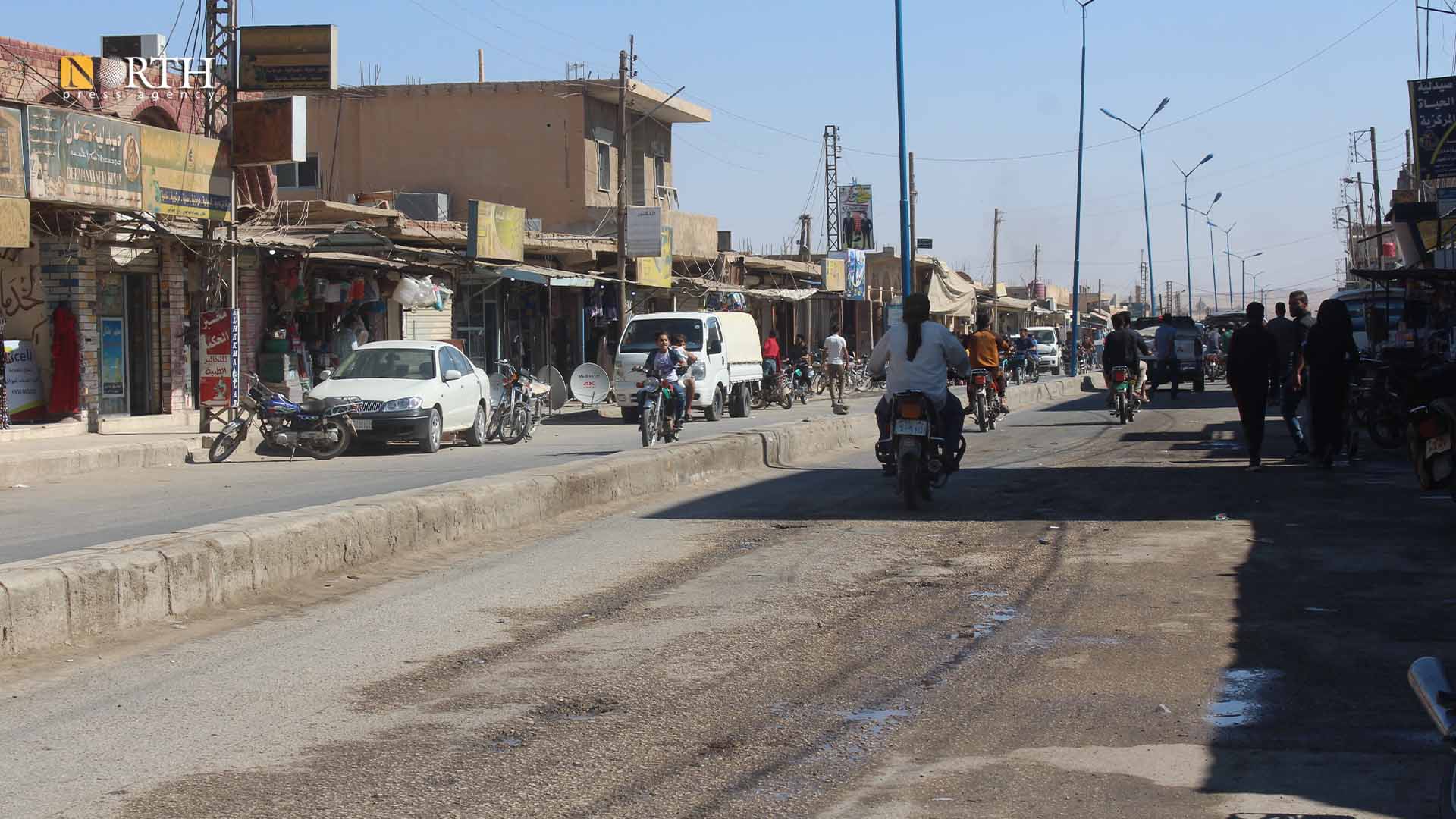SHADDADI, Syria (North Press) –15-year-old Rawda, a resident of the town of Shaddadi, south of Hasakah, northeastern Syria, painfully narrates the story of her early marriage, which did not last for more than one year, after her family convinced her that marriage “protects girls.”
The girl, who asked North Press to censor her surname, married a 16-year-old boy at the request of her parents a year ago. “I didn’t know anything about marriage at the time except that the bride wears a white dress and goes to her husband’s house.”
She added that she had to terminate her pregnancy before her eventual divorce from her husband, because her body could not bear the consequences of pregnancy along with the many problems between her and her husband.
Widespread in the countryside
Underage marriage increased in the southern countryside of Hasakah, due to the dominance of tribal customs and traditions, and as a consequence of the war and deteriorating economic conditions.
The Sara Organization to Combat Violence Against Women, operating in northeastern Syria, documented 82 cases of underage marriage during 2019 and the first half of 2020, all over Hasakah.
Although this number appears to be lower than in other parts of Syria, it does not include all cases due to secrecy in some areas, which was confirmed by Etab Muhammad, the administrator at the Women’s House in Shaddadi.
Muhammad said that the phenomenon of underage marriage is increasing in the town and its countryside, “but we do not have accurate statistics due to families’ silence on the issue of underage marriage, even when divorce occurs.”
The rate of underage marriage throughout Syria increased from 13% to 46% during the war in the country, according to UNFPA’s program to combat gender-based violence.
Arzo Tammo, who is responsible for the women’s affairs committee in the Sara Organization, said that the phenomenon of underage marriage is more widespread in the countryside and villages of Hasakah governorate than in the city centers.
Rural areas, especially tribal ones, witness secrecy regarding certain social issues, in addition to the families’ fear of being held accountable by the Autonomous Administration institutions, whose laws prohibit the marriage of underage girls.
Lack of societal awareness
The reason for the increase in underage marriage, according to the Women’s House in Shaddadi, is due to customs and traditions, the lack of awareness in the community, and the deteriorating economic situation in the region.
The Autonomous Administration in northeastern Syria (AANES) is trying to prevent this phenomenon in its areas of control, and issued a law in 2014 prohibiting marriage under the age of eighteen.
However, most of the marriages of underage girls are carried out by clergymen and are established in courts affiliated with the Syrian government, whose laws do not prohibit the marriage of underage girls, according to women’s rights activists.
Article 1 of the Syrian Penal Code stipulates that whoever contracts the marriage of a minor outside the competent court shall be punished with a fine of 25,000 to 50,000 Syrian pounds, if the marriage was concluded with the consent of the guardian. This means that underage marriages are legally valid if a government court approves.
Psychological and social problems
The phenomenon causes many social and psychological problems for girls, and its consequences last for life. It is also considered one of the main reasons for the high rates of divorce, as a result of the couple’s inability to understand the concept of marriage because of their young age, according to the Sara Organization.
Fadia Rashid (a pseudonym), from the countryside of Shaddadi, was married before the age of 16 due to her family’s lack of awareness and their difficult living conditions.
Rashid thought that marriage would make her happy and improve her life, “but I was surprised that marriage is a great responsibility and that I don’t know anything about family rights and duties.”
She pointed out that at the beginning of her marriage, she had problems with her husband, in addition to other health problems due to pregnancy and childbirth, which almost killed her.
Rashid added that she was deprived of completing her education.
Etab Muhammad points out that underage marriage has many negative effects, including depriving the girl of childhood and education and imposing great responsibilities on her in her teenage years.
Families justify the marriage of minors by citing the difficult and deteriorating economic situation, ignoring the consequences their children may face in the future.

